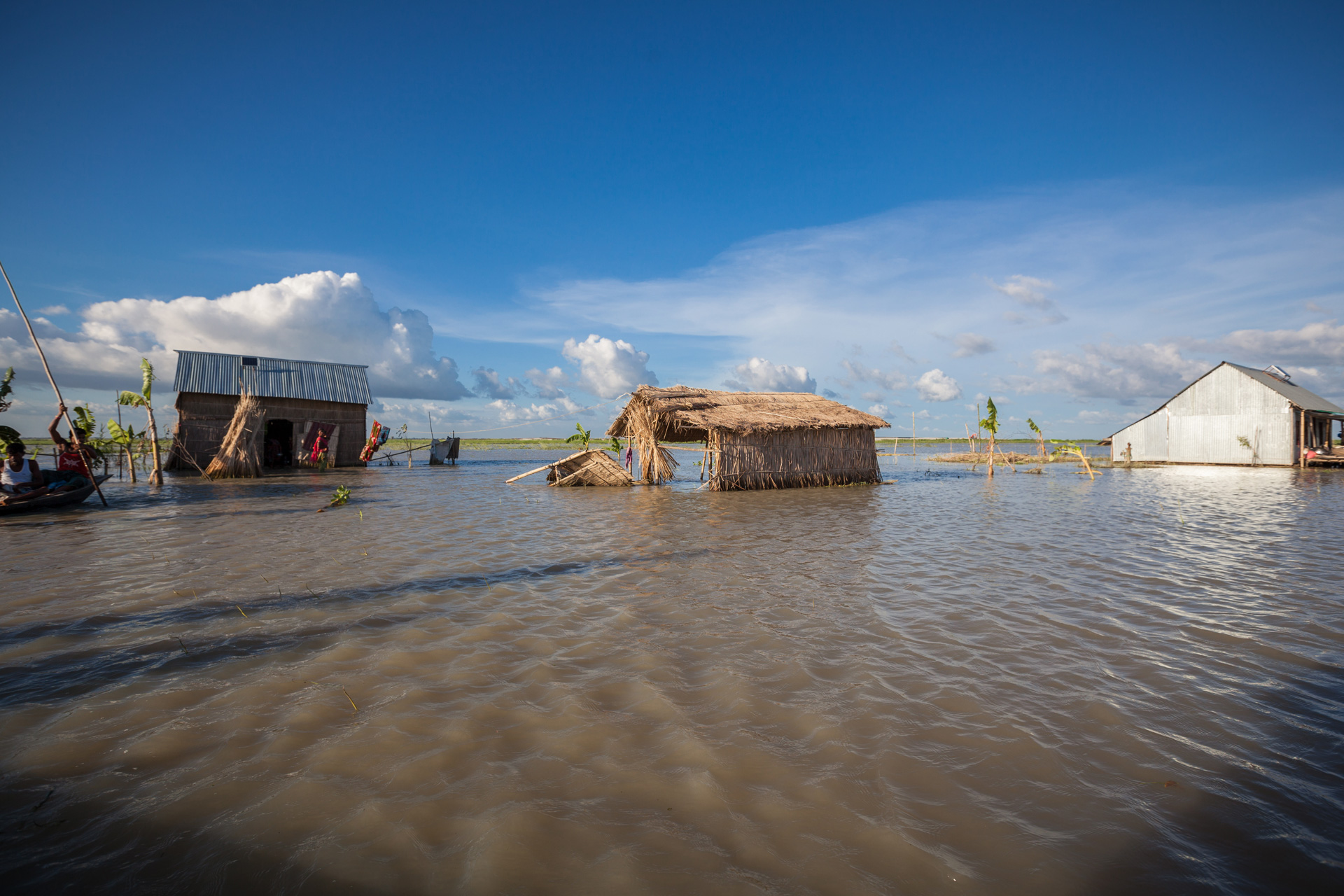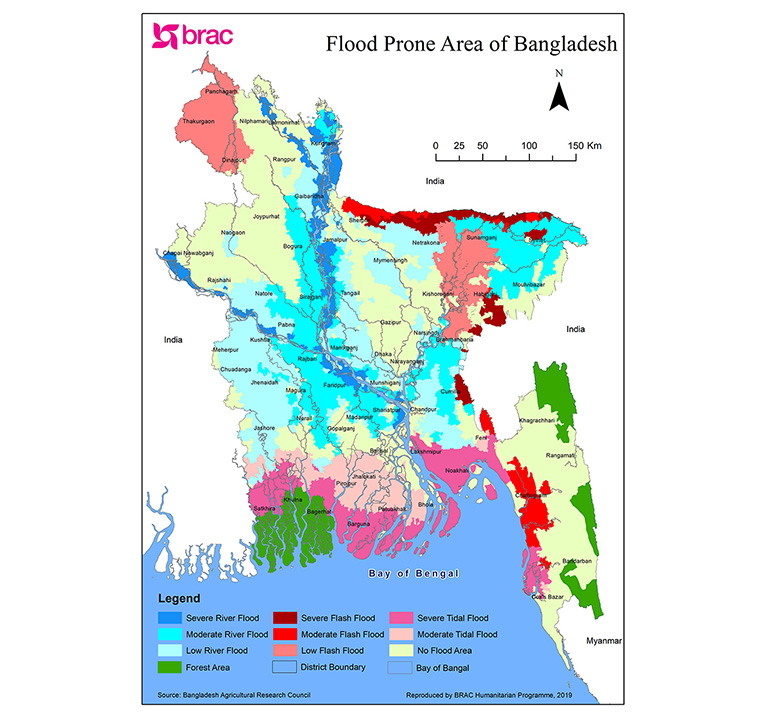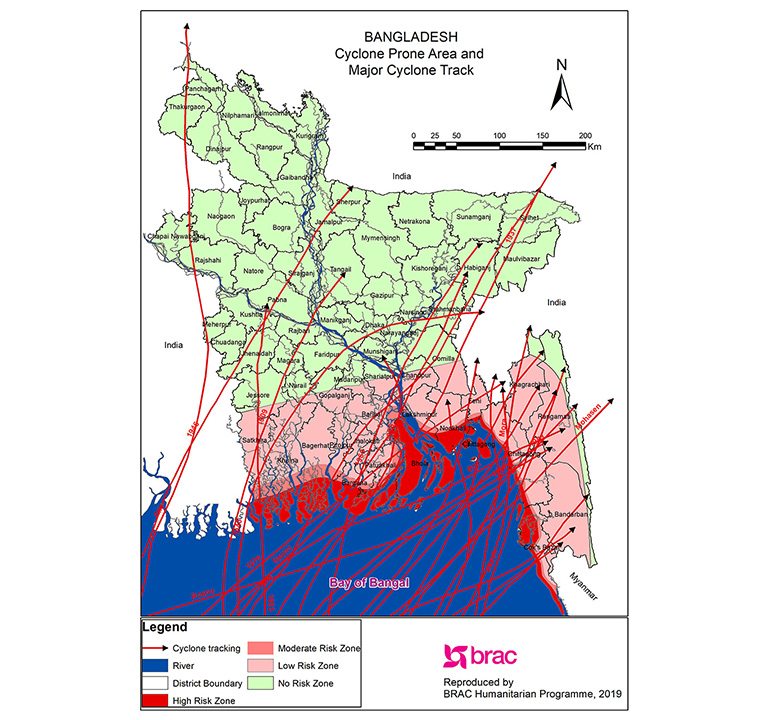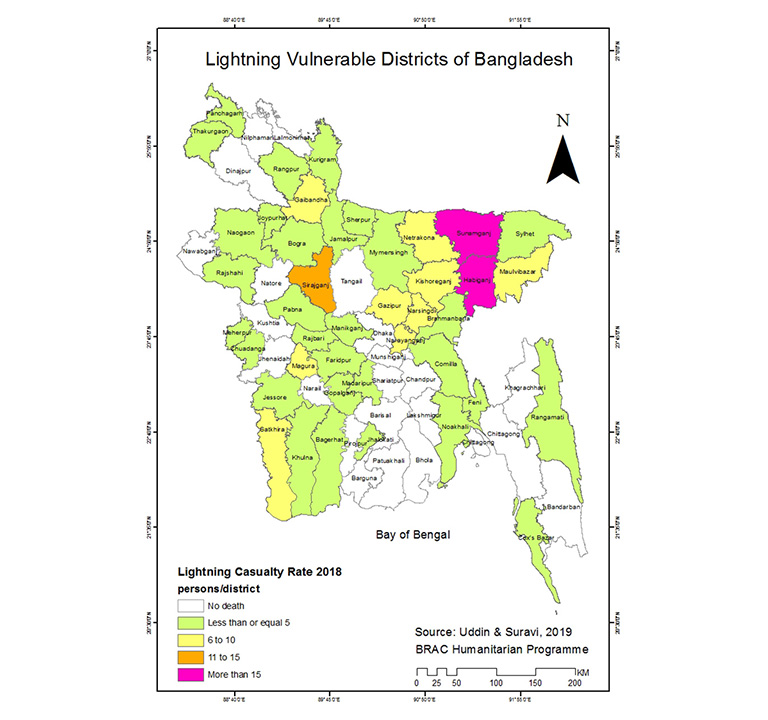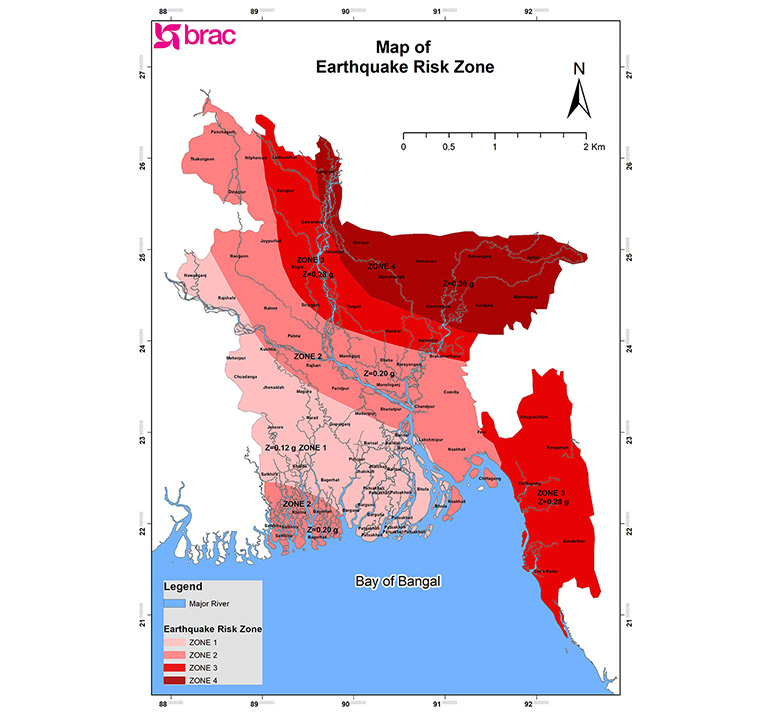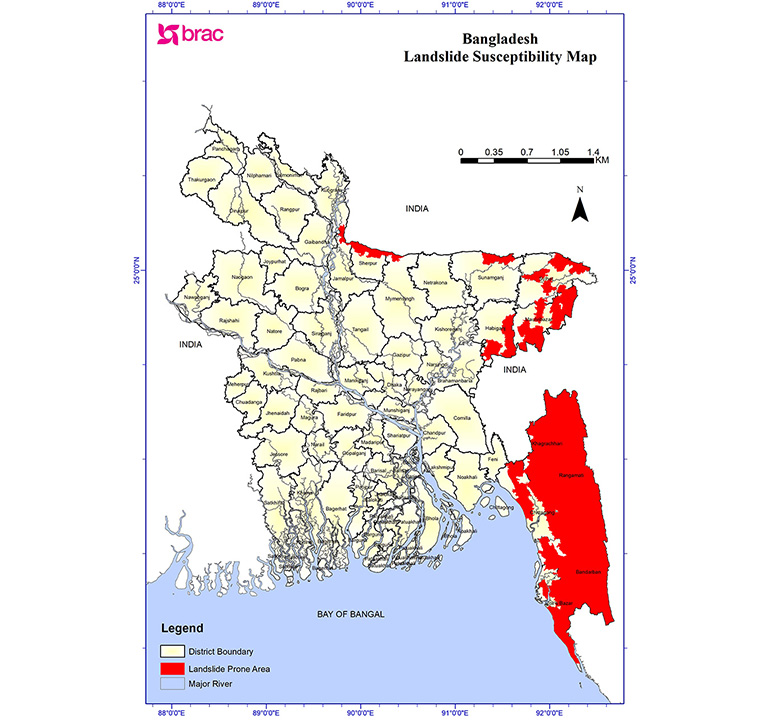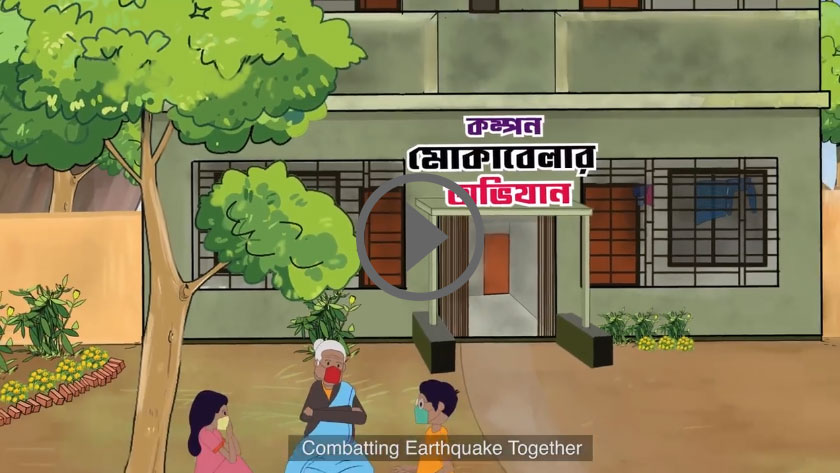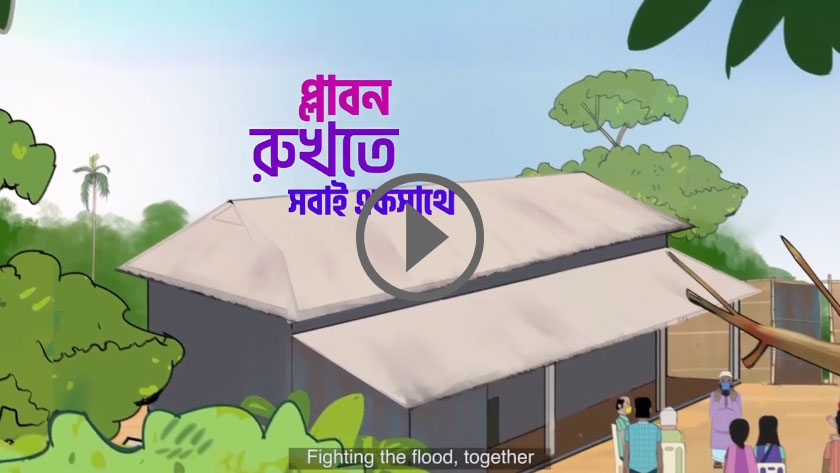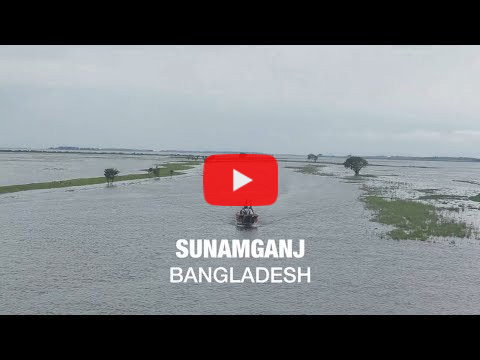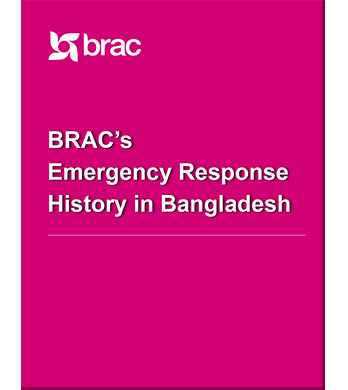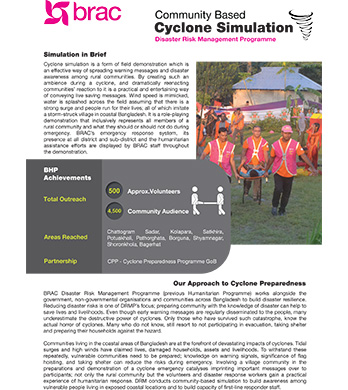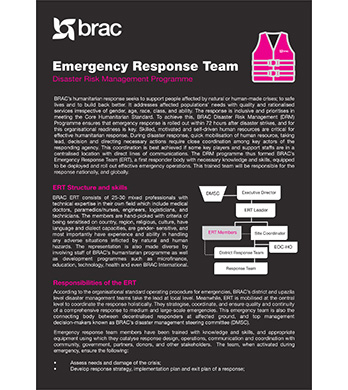Bangladesh is the 8th worst affected country in the world in terms of natural disasters and 3.5 million people are currently in need of humanitarian assistance.
Every year, over 80% of Bangladesh's population is potentially exposed to floods, earthquakes and droughts, and over 70% to cyclones. Disasters disrupt development and pose a threat to achieving Sustainable Development Goals.
BRAC started its journey through providing humanitarian assistance. Today, BRAC Disaster Risk Management Programme works to build the resilience of communities in the most vulnerable situations and support people most affected by disasters. When a disaster strikes, the programme responds within 72 hours, anywhere in the country.
IMPACT
Access to safe spaces: 30,000 people have access to shelters and resilient housing
Warnings before riverbank erosion: 23,192 people received early warning messages
Aid after landslides: 9,508 people reached through emergency humanitarian assistance
Support after building collapse: 780 survivors were supported in the aftermath of a building collapse in 2013
WHERE WE WORK
We work alongside the government, development partners, NGOs and communities across Bangladesh to strengthen disaster resilience and respond holistically to the effects of disasters.
WHAT WE DO
Our programmatic priorities are aligned with the Sendai Framework for Disaster Risk Reduction and Sustainable Development Goals.
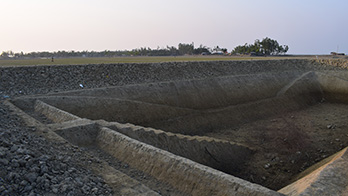
Disaster risk reduction
Mainstreaming Disaster Risk Reduction into BRAC’s development programmes
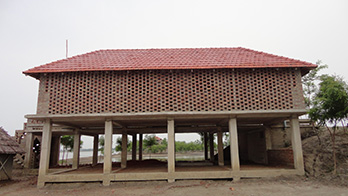
Emergency preparedness
Strengthening readiness and building capacity to ensure efficiency in humanitarian response
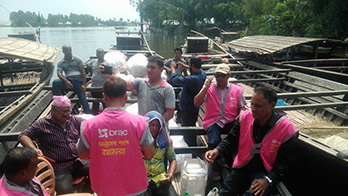
Emergency response
Responding to the most urgent needs of vulnerable communities during emergencies
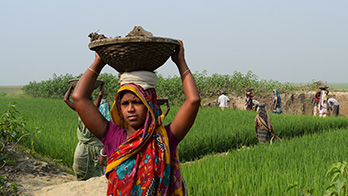
Strengthening community resilience
Recovery and rehabilitation efforts which support communities to build back better
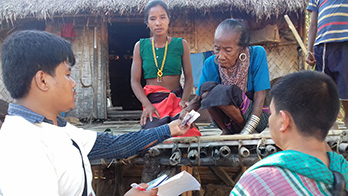
Gender integration and inclusiveness
Integrating gender equity and inclusiveness in disaster and humanitarian programming
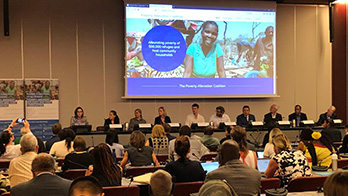
Advocating for vulnerable communities
Supporting policy reform and social change in the disaster and humanitarian contexts

